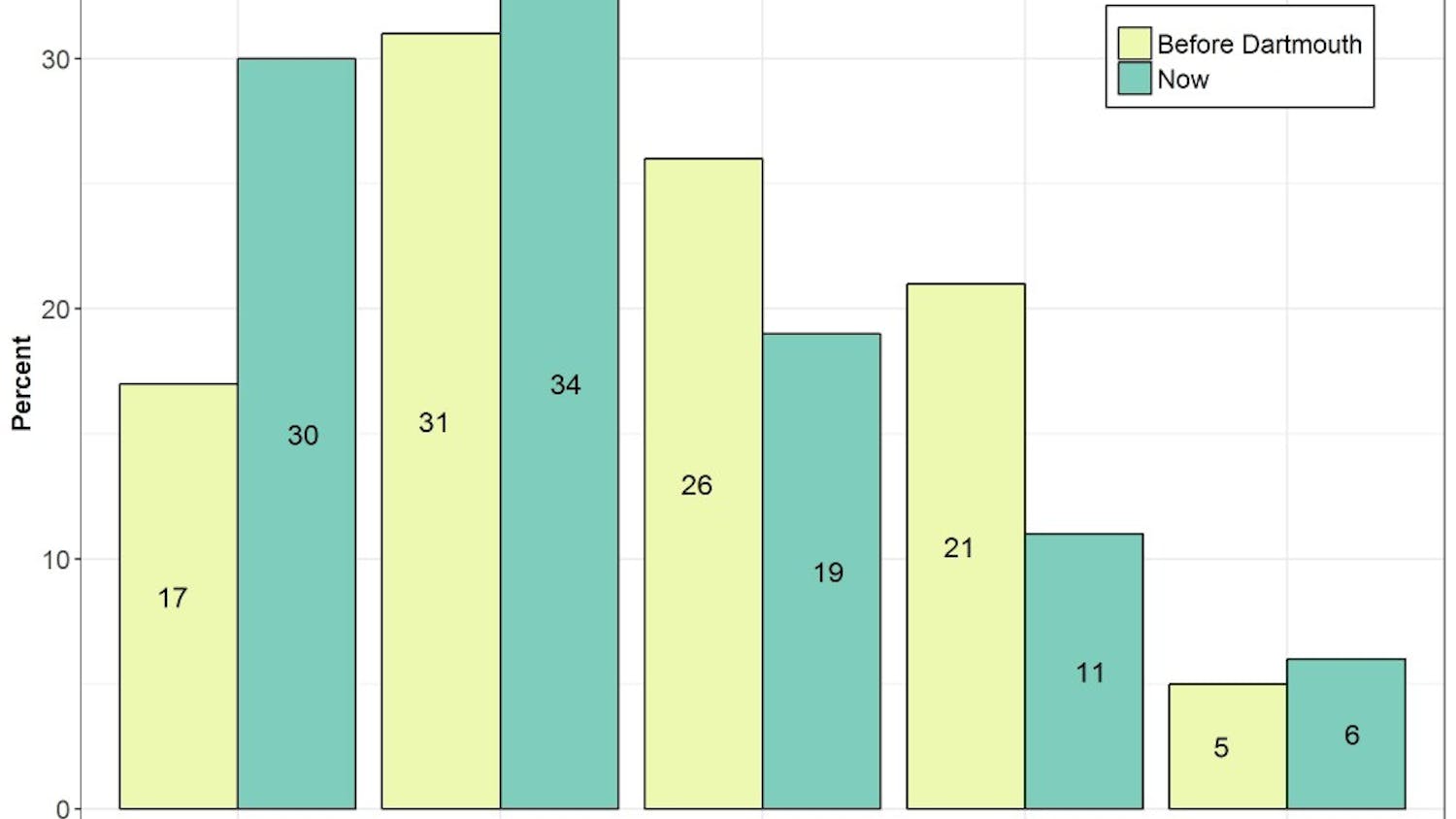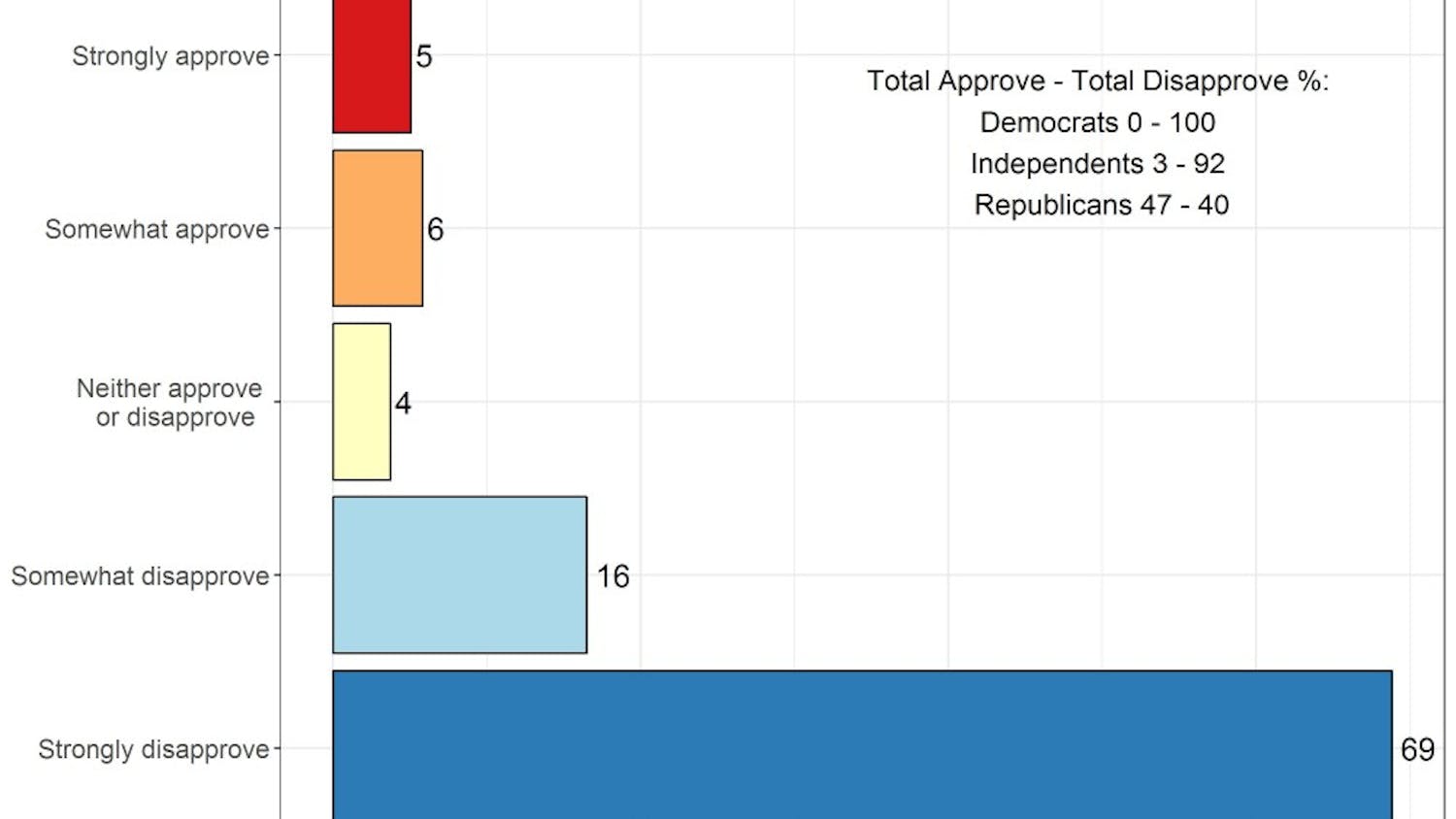Trump jokes are low-hanging fruit. They’ve been made before — they’re overdone, easy, trite and, after two years of constant digs at the President and everyone in his circle, they just aren’t funny anymore.
So why do we still tell jokes about how unqualified he is, how orange, how despicable? Because they bring us together. When we poke fun at Trump, we instantly establish a common ground.
The problem with political jokes, however, is that they are isolating. While nearly everyone you meet on a college campus is likely to hate the President passionately, the reality is that roughly 63 million people voted Trump into office, and he still has a 42 percent approval rating. Jokes about the President or his politics — jokes that convey that you find him and his beliefs despicable — isolate anyone who doesn’t feel the same.
Many of my professors have made digs in class at the President, the Republican Party and whatever of their antics CNN is covering that week: the Mueller Report, Stormy Daniels, Russian collusion, etc. I can’t count the number of times that a professor has featured one of the President’s tweets in a slideshow for the sole purpose of getting a laugh, made a sly comment about Russian collusion or groaned about “this administration.” These jokes convey that professors “think like us.” That they, too, are liberal-minded and can relate to a younger generation.
While more often than not these jokes land well, for the precious few students who don’t passionately hate Trump, jokes like these are needlessly isolating. They take for granted that the common view of the classroom is anti-Trump, so much so that Trump and his supporters should be laughed at. Imagine how scary it would be to speak up in class and share a pro-Trump perspective knowing that 80 percent of your classmates likely disagree with you. Add to that the knowledge that your professor thinks you and your views are laughable, and it’s no wonder that we don’t often hear contrarian views shared by our peers in class.
College should be a challenging environment that pushes the boundaries of our perspectives. I think it’s well within the proper role of a professor to communicate his or her political views and to challenge those of students. But those views should be presented as opinions and backed up with facts. My favorite classes have been those that changed my mind or challenged one of my fundamental beliefs.
“Arab Political Thought” with visiting government professor Ezzedine Fishere pushed me to consider whether rationality is fundamentally incompatible with religion. A class with government professor Michelle Clarke has made me think, for the first time, really, about the possibility that democracy could be fundamentally flawed. Government professor Jennifer Lind’s writing seminar, “Nationalism in War and Reconciliation,” made me consider the value of traditions — even offensive ones — and of forgiveness. Good professors challenge our views, but by discussing them, not by laughing at them. While offhand jokes might help professors win a few laughs, real discussions turn professors into role models and mentors. Long after the laughter dies down, students will remember the professors who changed their worldviews, respected their views and taught them how to think.
By making jokes that assume all students share the same anti-Trump views, professors turn classrooms into echo chambers where the only people willing to speak up are those who share prevalent views and the few contrarian students are not convinced, just silenced. Professors, more than anyone, should be pushing us to think more deeply than easy jokes and soundbites allow. We should leave classes challenged and disoriented, not patting each other on the back for making the same jokes time and again and laughing at anyone who thinks differently.



